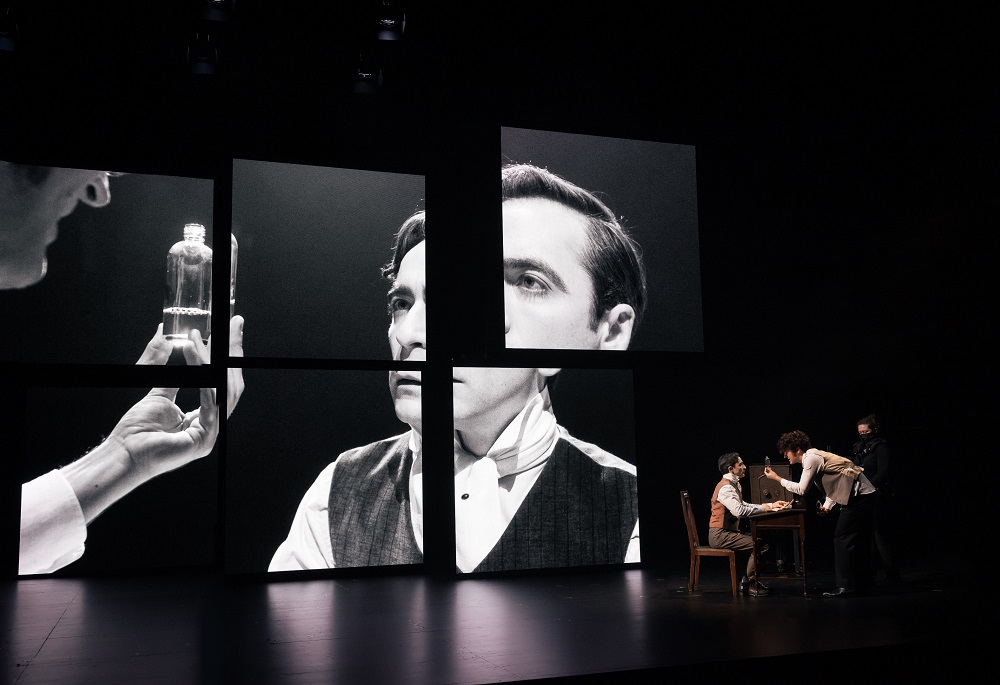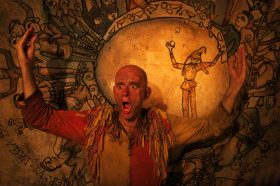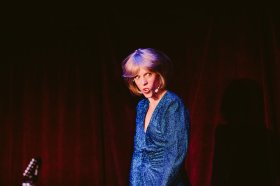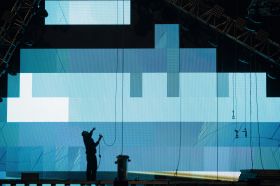While the feature show of this year’s Adelaide Festival opening weekend was undoubtedly the compelling and demanding Dogs of Europe, a range of other productions were on offer, from the flawed to the exquisite.
While all had their merits, the highlight was an exquisite choral performance at Adelaide Town Hall.
Escolania de Montserrat
4 ½ stars
As someone who has specialised in writing about dance, theatre, circus and comedy during my two-decade-plus career as an arts journalist, reviewing a performance by one of the greatest boys’ choirs in the world is so outside my purview as to raise multiple challenges – not the least of which is that I lack the years of critical insight and artform-specific language to do justice to the task at hand.
How then to review this premiere Australian performance by the Catalonian – not Spanish – boys’ choir from the Benedictine abbey of Santa Maria de Montserrat at this year’s Adelaide Festival?
To call the performance sublime, transcendent and exquisite feels gushing but true, though even such praise feel inadequate when watching and listening to these talented children as they took to the stage of Adelaide Town Hall.
Simultaneously, watching the boys assemble on stage – one scratching his nose, another digging wax out of his ear, yet another shifting nervously as he stands between his peers – was to be reminded that despite their rigorous training (three hours a day on top of their regular schooling, with two performances every day for visiting pilgrims), these are just ordinary children: some saints, some brats, the majority of them doubtless somewhere in between, and with some nerves on display even despite the obvious skill of their performances.
But collectively, these boys invoke the ineffable: summoning the presence of the divine through the beauty of the music they give voice to.
Reputedly the oldest boys’ choir in the world (though not as old as the abbey itself) Escolania de Montserrat is continually refreshing its membership. As a visiting Benedictine priest remarked at the start of the concert (in between apologising for his poor English, though noting we would probably prefer it to his excellent Catalan), the choir itself is at least 700 years old. Its current members, however, are not, with the performers in Adelaide aged between 10 and 12 (the choir’s 10 youngest members did not accompany their peers on this trip).
The concert began with a moment of magic – as visiting organist Mercè Sanchis began playing, the boys’ voices seemed to come from everywhere, echoing and sweeping through the vaulted, gilded space of the Town Hall. Soon, from my vantage point in the aisle, the boys paraded past on their way to the stage as they gave voice to the Gregorian Chant Germinans Germinabit, but even then, there was no diminishing the enchantment of their performance.
Whether accompanied by a sometimes deliciously discordant organ on Bernat Vivancos’ contemporary take on the Salve Regina prayer (sung daily at the abbey at 1pm) or a sparse yet warm piano in the Catalan-language L’Ametller (‘The Almond Tree’) also by Vivancos, this was an outstanding, vital and truly uplifting concert. The choir’s performance of Ave Maria by Franz Schubert was, however, the undoubted highlight – a remarkable moment in which a familiar piece of music was transformed into something truly extraordinary.
Outgoing Co-Artistic Directors of the Adelaide Festival, Rachel Healy and Neil Armfield have programmed an array of choral works across their tenure, but surely this concert was the apotheosis of such programming. A magical evening that I will long remember.
Escolania de Montserrat
Conductor: Llorenç Castelló
Accompanist/Organist: Mercè Sanchis
Tickets: $40 – $129
Adelaide Town Hall
3-5 March
Strange Case of Dr Jekyll and Mister Hyde
3 ½ stars
Robert Louis Stevenson’s Strange Case of Dr Jekyll and Mister Hyde, a Gothic novella about the internal conflicts that tear at the human soul, was first adapted for the stage within a year of its original publication in 1886.
This latest of many subsequent takes on Stevenson’s classic, adapted and directed by Sydney Theatre Company Artistic Director Kip Williams, hews closely to the original narrative – and in doing so jettisons the various romantic sub-plots inserted into the tale over the years.
Williams’ most striking contribution to this new iteration is his use of the ‘cine-theatre’ technique displayed so spectacularly in 2020’s The Picture of Dorian Gray. Whereas Dorian Gray was a one-woman tour-de-force, Strange Case of Dr Jekyll and Mister Hyde shares the narrative load (appropriately, for a story about duality and the public versus private behaviour of Victorian gentlemen) between two actors, who are followed across the stage by a small, tightly choregraphed army of camera operators and stagehands.

Matthew Backer plays the lawyer Gabriel Utterson, though whose eyes the story is primarily told, with restraint and care, while the mercurial Ewan Leslie takes on all other characters, ranging from butlers and policemen to Jekyll and Hyde themselves. As with Williams’ adaptation of Wilde, the text is often performed verbatim, with each actor chiming in with a quick ‘he said’ at the end of one another’s lines.
The Dorian Gray creative team rejoin Williams for this production, including designer Marg Horwell, lighting designer Nick Schlieper, composer Clemence Williams, video designer David Bergman and video editor Susie Henderson, who seamlessly mixes the feeds from multiple cameras live before our eyes upon a series of screens that swoop, rise and float across the stage.
Visually, the influence of film noir is evident throughout, shown most beautifully in a scene where the shadows cast by a bedhead evoke prison bars as they fall over an actor’s face. At other moments, the overlapping screens provide a fractured image of a face – a chin here, a forehead here – rather than a composite view, emphasising the novella’s central conceit of split personalities at war with and within themselves.
But, while there’s much to enjoy about Strange Case of Dr Jekyll and Mister Hyde, overall the production feels too similar to its predecessor to truly impress. Watching it feels like watching a Hollywood sequel, where a director or screenwriter has said ‘the formula worked last time so let’s stick to similar scenes and the same plot beats the second time around’. This flaw is most strongly evident in a riotous sequence late in the play, when Hyde’s secret life is suddenly revealed in technicolour – it all too faithfully echoes a similar sequence in Dorian Gray and feels both repetitive and contrived.
While a revelatory scene upon a staircase is handled beautifully, generating palpable tension and unease, the play fails to build upon this drama subsequently, resulting in a rushed, manic and one-note climax. Greater emotional variance and a deliberate slowing of the pace may have helped this section of the play land more powerfully.
Conversely, the decision to avoid showing Hyde’s face for as long as possible is both wise and compelling – masking his monstrousness for this extended period utilises our own imaginations in a way that only enhances the impact of his crouched and bestial appearance once his visage is finally revealed.
Strange Case of Dr Jekyll and Mister Hyde
Adapter and Director: Kip Williams
Designer: Marg Horwell
Lighting designer: Nick Schlieper
Composer: Clemence Williams
Sound designer: Michael Toisuta
Video designer: David Bergman
Assistant video director: Sarah Hadley
Video editor: Susie Henderson
Associate director: Ian Michael
Fight director: Nigel Poulton
Voice and text coach: Charmian Gradwell
Cast: Matthew Backer and Ewen Leslie
Tickets: $40 – $129
Her Majesty’s Theatre, Adelaide
Until Sunday 12 March
The writer visited Adelaide as a guest of Adelaide Festival.





